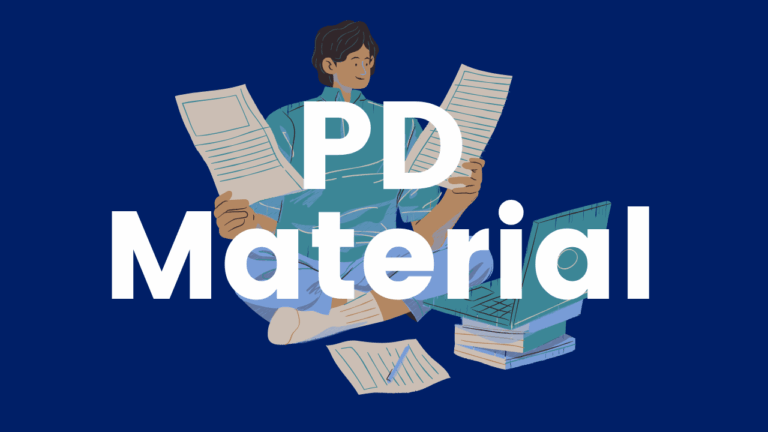Decoding or Fluency Instruction in Middle School?
Dr. Timothy Shanahan explores possible reading profiles of students in grades 6 – 8 who struggle with reading, clarifying the value of focusing on decoding, fluency, or both.

Dr. Timothy Shanahan explores possible reading profiles of students in grades 6 – 8 who struggle with reading, clarifying the value of focusing on decoding, fluency, or both.

This resource has been compiled by a group of Canadian language and literacy experts. It is organized into three primary segments. First, it highlights the essential information educators should possess about various research types, enabling them to stay well-informed and knowledgeable about the connection between language, reading, and writing instruction. The next section focuses on…

This facilitator’s guide is designed to assist professional learning communities (PLCs) in applying evidence-based strategies to help K-3 students acquire the language and literacy skills needed to succeed academically. This document is a support for educators watching the IES videos of foundational language and literacy instruction.

Put Reading First is a summary of the findings from the Report of the National Reading Panel, summarized in a brief, easy-to-read comprehensive guide to evidence-based reading instruction. Intended for educators and administrators, this guide aims to improve reading outcomes for children in the early grades, summarizing key research findings on phonemic awareness, phonics, fluency,…

Reader friendly book for educators outlining 7 changes to classroom instruction to improve literacy outcomes.

Written for teachers by a teacher with a strong understanding of reading science, this title supports both the foundational skills and language comprehension components of reading.

In this podcast episode, Lindsay Kemeny highlights the “7 Mighty Moves” she made to align her early literacy instruction with research. Moves include teaching phonemic awareness with intention, teaching phonics explicitly and systematically, teaching decoding strategies, using decodable texts for beginning readers, encouraging more decoding of high-frequency words, providing meaningful fluency practice, and embracing vocabulary and knowledge instruction to support comprehension.

In this IDA Ontario podcast featuring Kate Winn and Dr. Jan Hasbrouck, the focus is on the significance of reading fluency and its impact on students’ literacy development. Reading fluency, characterized by accuracy, rate, and prosody, plays a vital role in overall reading proficiency and comprehension. The podcast highlights the importance of assessing reading fluency effectively, and using research-backed approaches to supporting fluency development.

Structured Literacy Interventions is an anthology of chapters written by many well-known names in reading science, including Louise Moats, Devin Kearns and Louise Spear-Swerling who also edited the book. Chapters cover a wide range of possible areas of reading difficulty, including phonemic awareness & word recognition, spelling, fluency, vocabulary, oral language comprehension, reading comprehension and written expression. The title supports Strands B (Foundations of Language), C (Comprehension) and D (Composition) of the Language curriculum. Each chapter offers research-based background and practical applications for educators working with struggling students. The book includes lesson plans and application activities, and is perfect for special education and intervention teachers, but also helpful for classroom educators looking to intensify instruction for struggling students.

This webinar will support educators in determining oral reading fluency goals, specifically for accuracy and rate, and how to provide instruction for these goals in a small group setting. Michael Hunter provides examples of assessment with a focus on accuracy, error tracking using decodable texts, and how to provide small group instruction to first improve accuracy followed by rate. This webinar will support educators of all grade levels working with students to improve oral reading fluency with connected text.

This PaTTAN Webinar focuses on partner reading, a classwide intervention to improve students’ fluency. This is an intervention that can be used best in grades 2-8, but also possible in mid-year of grade 1. Lindsay Kemeny implemented this class-wide intervention in her grade 2 classroom and in just two weeks saw growth in her students’ ORF scores. In this webinar, Lindsay shows educators how to implement partner reading in the classroom and provide printable resources.

Put Reading First is a comprehensive guide to evidence-based reading instruction. Intended for educators and administrators, this guide aims to improve reading outcomes for children in the early grades.Chapter 1 provides an overview of the essential components of effective reading instruction, such as phonemic awareness, phonics, fluency, vocabulary, and comprehension. Chapter 2 focuses on the critical early stages of reading development, emphasizing the importance of explicit instruction in phonological awareness and phonics.Chapter 3 highlights the significance of developing automaticity and prosody in reading to enhance comprehension.Chapter 4 delves into the importance of vocabulary, teaching word meanings and strategies to foster word learning.Chapter 5 explains techniques for enhancing understanding, including active engagement, monitoring, and metacognition.Practical strategies for classroom instruction include using explicit and systematic phonics lessons, providing ample opportunities for guided oral reading, incorporating vocabulary-building activities, and promoting meaningful discussions to enhance comprehension.